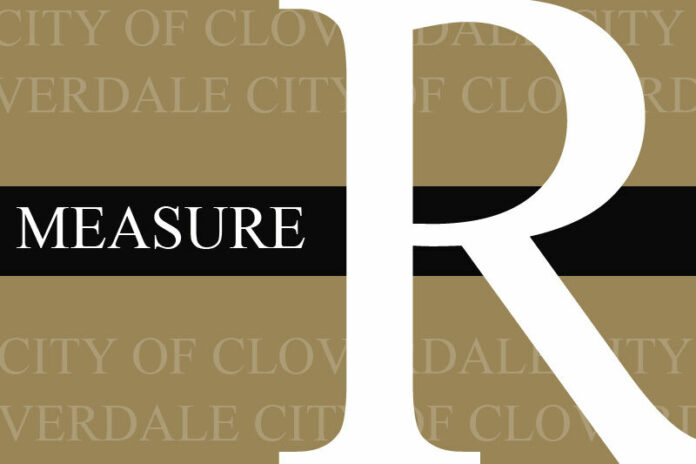Cloverdale’s user utility tax extension, Measure R, is on track to pass, according to initial election results from the Sonoma County Registrar of Voters. While election results haven’t been updated by the registrar since Thursday, Nov. 5, the measure has received 1,760 (53.87%) of the “yes” vote and 1,507 (46.12%) of the “no” vote. It needs a simple majority to pass.
While the reported votes are currently in favor of the measure, the county registrar is still working on tallying all of the mail-in ballots and ballots that were dropped off after Oct. 29. Because of this, an unknown number of ballots from Cloverdale are left to count. The deadline for the registrar to certify results is Dec. 3.
Measure R asks voters to extend the city’s current 4% tax on telecommunication (including landline telephone and cell phone services), video (including cable television) and electricity and gas services within the city without an end date — the measure would need to be repealed by voters.
The user utility tax was last renewed as Measure O in 2014 and is set to sunset in January 2023.
The tax brings approximately $445,000 per year into city coffers and is primarily used to fund a sworn officer for the Cloverdale Police Department, as well as a dispatcher. While both of those positions take up a sizeable portion of the funds brought in, money from the tax is funneled into the city’s general fund and will also go toward repairing potholes and streets, installing backup power systems for the city, help the city prepare and respond to natural disasters and health emergencies, support youth and teen programs as well as maintain rapid 911 response, according to the city-produced mailers about Measure R.
No official argument in favor of the measure was submitted for the voter pamphlet. However, an argument against the measure was submitted by Daniel Drummond of the Sonoma County Taxpayers’ Association.
In the submitted statement, Drummond refers to Measure R as “a forever tax that never goes away,” and accuses the city of using a “sneaky strategy that exploits” voters who may not be familiar with the ballot measure process.
“Oh sure, your council members are telling you this tax remains only ‘until ended by voters.’ That seemingly benign phraseology belies the near impossibility of average citizens getting a repeal measure on the ballot. Unless you and an army of volunteers intend to spend a month camped out in front of the grocery store and post office collecting signatures or plan on hiring professional paid signature gatherers to get the necessary signatures,” the argument against the measure states.
When asked about the decision to not assign an end date to the tax, Kelley said that the decision was based on a few variables — having a more stable source of revenue for the positions the tax pays for, not having to pay the fees associated with going back to voters for a renewal and knowing that, should voters or the city end up disagreeing with the tax if the measure is approved, it could be repealed.
“If we lose this funding it puts those positions in jeopardy, so it’s really critical that this funding continues,” Kelley said. “What you do ideally is you generate another significant revenue source to help fund those positions going forward. With the challenge of the impact on the economy from the fires we’ve had and then COVID, it looks highly unlikely that we’re going to be able to generate enough additional revenue to fund those positions let alone fund the additional projects and activities, our community-based organizations and our critical infrastructure projects.”








